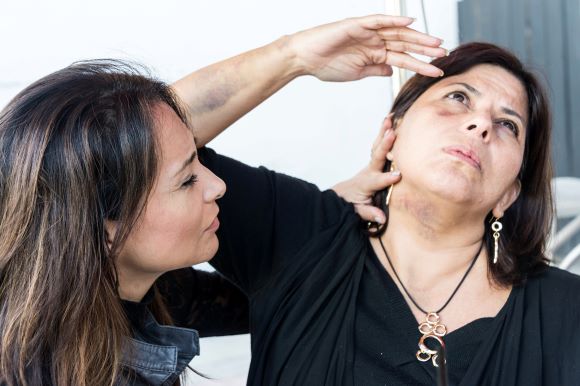Assault in Nevada is a serious offense with severe consequences. Here is everything you need to know about Nevada laws regarding assault explained by our Las Vegas criminal defense attorneys.
NRS 200.4711 defines “Assault” as unlawfully attempting to use physical force against another person or intentionally placing another person in reasonable apprehension of immediate bodily harm.
Note: the word “attempting” is key here, as it implies that the act of violence need not ever have been actually committed. Even just the attempt to commit the act of violence (the punch, slap, stab, etc.) is a crime.

A person found guilty of assault under Nevada law may be punished in various ways, depending on the specific circumstances of the offense and whether or not the assault was made with a deadly weapon.
Simply stated, if the assault was not made with a deadly weapon (also known as a “simple assault”), the first assault charge would be a misdemeanor, punishable by up to 6 months in jail and a $1,000 fine. However, if the assault was made with a deadly weapon or “the present ability to use a deadly weapon,” the charge is a category B felony and could lead to imprisonment for 1-6 years, as well as a fine of up to $5,000.
Note: these charges and penalties may be different if the assault was committed against a police officer, a health care provider, a school employee, a sports official, a taxi driver or other “protected classes” of citizens, as defined by Nevada law.
For example, suppose the victim of the assault was on duty as a police officer or one of the other protected classes listed above (and assuming the assault was committed without a deadly weapon). In that case, the charge is not a misdemeanor. It is a gross misdemeanor, punishable by up to a year in jail and a fine of up to $2,000. Basically, the penalties double.

Some of the more common defenses against assault charges include:
In order to build a successful defense against an assault charge, it’s essential to have all the facts and evidence. Working with an experienced attorney will help collect crucial details that could make all the difference in your case.
NRS 200.4812 defines battery as any willful and unlawful use of force or violence upon someone. This is different from assault in that battery always constitutes physical violence (remember: assault can be simply the attempt of violence.) Because of this significant difference, battery charges carry with them heavier penalties than assault charges—especially if a deadly weapon was used.

Contact our Las Vegas legal team if you’d like to learn more about your rights regarding assault charges. We can discuss the details of your case and work together to build a strong defense. Call today for a free, no-obligation consultation.